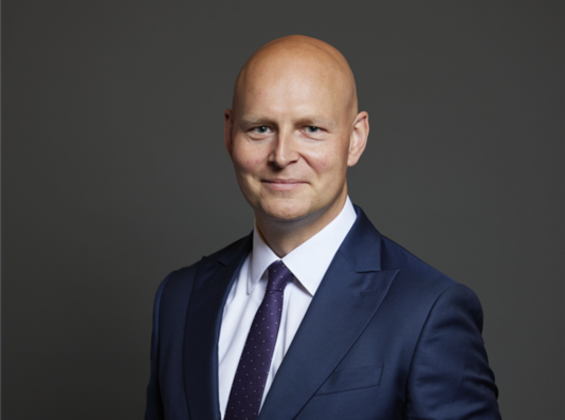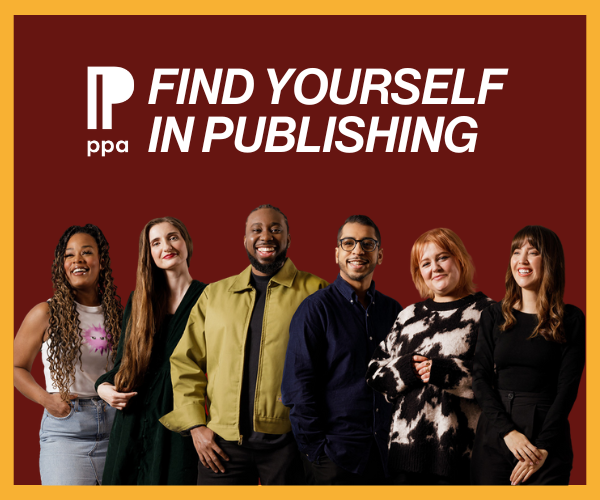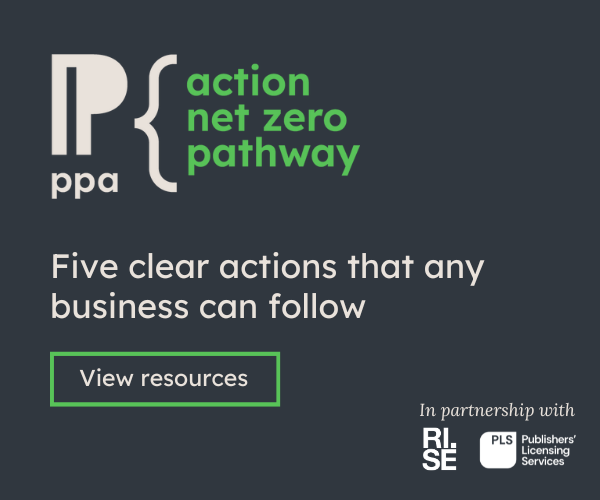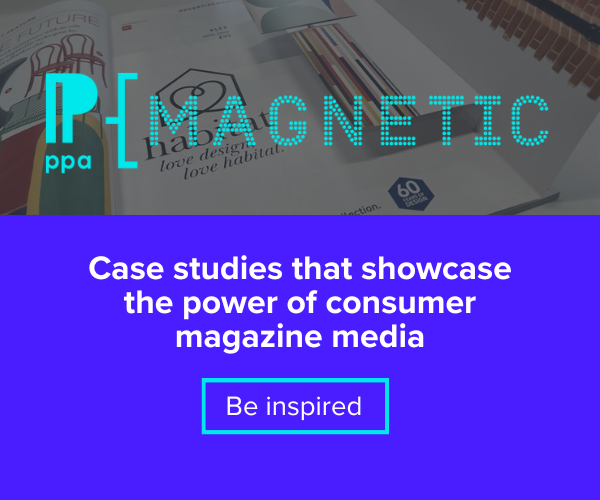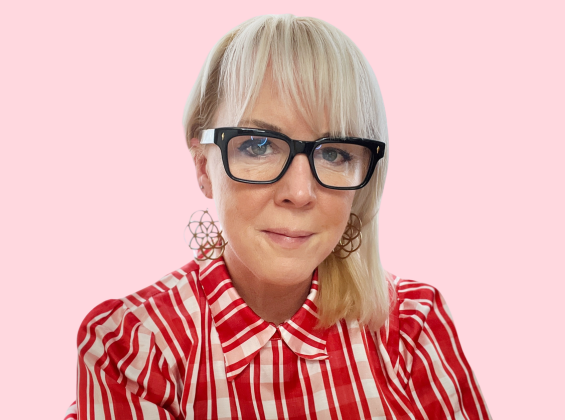Chart your career from the start to now.
I started off as a journalist. Way back in the early ‘90s I was a winner of the Young Sportswriter of the Year Award for Shoot magazine. That whet my appetite. My route into journalism was a post-graduate diploma and placement work at a local newspaper and a couple of magazines. I then went to work for a digital news agency for a while, and eventually moved over to Metro as their first mobile editor, which was back in a time when every new year was billed as the ‘year of mobile’. I remember someone telling me at that point that there was no way people were ever going to read news on their mobile. That's how long ago this was!
I spent about six and a half years at Metro. I held a number of roles, including Head of SEO, Head of Digital Content, Technology Editor. During my time at Metro I became much more aware of all the many facets of digital publishing. It helped with my understanding of audience development, marketing and product development as well.
After that I moved to City A.M. and spent a couple of years there as Digital Director, building a digital proposition for the newspaper. I then moved back to Metro to spend a couple of years on a mobile app project, and then I made the jump to become a digital media consultant. I’ve worked for multiple publishing clients, one of whom was Beano Studios, part of the DC Thompson family. I ended up working for them as a consultant and that developed into becoming their Chief Product Officer, and then Chief Digital Officer. I spent about three years building a digital proposition for kids and turning that into a data insights business. And most recently, I've spent two years as Chief Product Officer at The New Statesman Media Group, and the GlobalData media brand. In the last few months I moved back into consultancy again and I'm now producing and chairing the PPA Decodes series and really looking forward to it!
You have experience as both a journalist and a product leader – do you think these roles are converging more as product and content become more linked?
I really do. I think there's two parts to this. Whenever I talk to product people I am struck by the similarities between a good journalist and a good product person. To my mind, a good product person is someone who is very inquisitive. The kind of person who really wants to understand the root of what's going on and wants to make evidence-based decisions, which is exactly the same as journalists. Journalists are good at asking questions, getting to the bottom of something, cutting through the noise, and getting to the heart of the issue. So, I think from that perspective, there's a real overlap.
From a wider perspective, I think a good publisher has to also have a good product. Content is a huge part of that, but it's not the only part. You can have the best content in the world. But if you don’t have a good product, which provides people with a good experience, then you risk wasting your time. The ability to market that product well – whether that's through SEO, social media or other distribution channels – is really important. I think there is an ever-increasing need for publishers to ensure they're thinking about the whole product, not just the strength of the content.
Were you aware of the importance of thinking about the distribution of digital journalism when you started your career?
I can almost pinpoint when I came to that realisation. It was during my first period at Metro when I was involved in aligning the digital and the print newsrooms. I remember saying at one point that not having a digital strategy would be like leaving a newspaper outside our office and simply hoping someone would pick it up. No one would ever do that! There was this sense with digital that you just sort of put it out there and people would come – but it doesn’t work like that. You have to have those marketing channels. You have to ensure you go to where people already are – that could be Google or Facebook or somewhere else. You also have to ensure that your product works really well on whatever device people are using. At that point our mobile readers were becoming the majority but there was still an internal focus on what the website looked like on desktop. .
I think that was when it really struck me that there's no point in me just looking at the content side if I'm not also looking at how that content is going to be delivered. How do we get analytics data back on that content? How do we understand what's working? How do we have a commercial model behind it that supports the production of that content? My perspective became one of needing to look at all of those pieces to create something sustainable and valuable.
You’re producing and presenting the PPA Decodes series, covering topics from whether it’s worth spending money on gaining new audiences, to platforms and publishers working together – how did you decide what should be covered in these sessions?
At the heart of it, it's about tapping into the main subjects of conversation within the publishing industry from a digital perspective. The sessions that we've chosen hopefully represent some of those conversations going on both inside of businesses, but also across the industry as a whole. We are covering issues that I've certainly thought about an awful lot. There has been a lot written about different approaches to these topics, and the intention here is to get different viewpoints and put them all together. Hopefully that results in something useful and meaningful for people to take away and apply to their own organisations.
What session are you most looking forward to?
They’re all going to be really interesting, actually, but I'm really looking forward to the first one, ‘Build or Buy’ which is – fingers crossed – going to be an in-person event in February. I think we've got some really interesting people who come with quite different perspectives.
The ‘Build or Buy’ question asks whether publishers should build their own technology solution, or go and buy it in from a third party? And whether they acquire and develop their own talent or outsource to experts elsewhere? These questions have cropped up so many times throughout the 20 years of my career. It’s a constant tension between the benefit of speed when buying from a third party so it’s ready to go or building it yourself and having complete ownership. It will be good to hear from people who've actually gone through that process and come out with slightly different conclusions, whether it's in ad tech, or in relation to a content management system, or how to create a software development capability. There are different approaches that work depending on your situation. So hopefully that will chime with a few people in the audience.
A knowledge of SEO is something journalists are expected to be well versed in. What is your advice for starting to learn the language of SEO?
My view on this is that SEO has evolved a lot and it can be easy to get caught up in the technicalities, especially as a publisher or a journalist. But I tend to stick to the core principle that Google inherently wants to reward high quality content that is relevant to what a person has searched for. So being ‘good at SEO’ is actually in alignment with being a good journalist, because you are seeking to understand what your audience wants and then delivering them with a very positive experience. This is where I think publishers need to focus on what they're good at. Focus on their expertise because that's where they're going to give a really high-quality experience.
There was a point a few years ago where I think many publishers were just trying to cover whatever people were searching for in Google, and that meant there was a lot of thin content, contributing to the coining of the phrase ‘clickbait’. Publishers would often respond to trends by producing a really quick piece of content just because a lot of people were searching for it. There needs to be more of a discerning approach to it where you say: ‘No, this isn't our area of expertise. People are not going to come to us as a publisher to read about that, because that's not what we stand for. Let's focus on what we're really good at.’
What do you think the future of magazines looks like in a world fuelled by data?
I'm a real optimist about this because, for me, the power of magazines has always been that they have a strong community-based audience who they have a shared interest and a trusted relationship with. If you are buying a magazine, it's usually because you trust what they are telling you and because you are interested in what they're talking about. Now in a world where data is increasingly important digitally, magazines have this advantage of having that trusted relationship already. As a user, I will be much more accepting of sharing my data with someone who I was getting something back from, who I trusted, who shared my interest, who I felt part of. I think magazines, potentially even more than newspapers, have a real strength in that world because the value exchange is so strong.
What’s on your radar?
I'm fascinated by what the media and publishing industry is going to make of Web3 and the metaverse. There are still many different ways this whole thing could go but the concept of there being a decentralised web, where individuals have the opportunity to be creators and owners, and make money from the things that they create, is really interesting for publishers. Some have already dipped their toe into the market, whether it's selling old covers through NFTs, or getting more involved in the metaverse. Over the next year or so it will start to become clearer what the real opportunities are. I think all publishers should be paying attention to it.
No one can sit here yet and say this is definitely what is going to happen. But it is certainly worth experimenting with things within the metaverse, blockchain and NFTs to see what might be right for your audience. That relationship with your audience will determine what's right and what's not right for you in that space.
The conversation around NFTs and the metaverse can still feel quite difficult to grasp. How can publishers make their consumers more a part of that conversation?
I think a lot of people are thinking exactly the same. I'm sure many journalists are having to research what the blockchain is!
I liken it a little bit to mobile phones. Back when I started at Metro there were multiple different mobile phones with multiple different operating systems. There were lots of detailed conversations about the technology that underpinned it. It took the arrival of something like the iPhone to just get rid of all of that. It suddenly became part of people's lives and became intuitive. You no longer had to explain what apps were. They just became a very natural part of how we lived our lives. I think what will happen over time, whether it's NFTs or some other thing that's based on blockchain, it will just become normal.
The stage we are at currently feels like where you have early adopters on the bell curve – it's whether what happens next is it just fizzles out, or whether it becomes a core part of what people do, and I don't think we know for sure. You'll hear some people say, ‘this is the future.’ And you'll hear other people say, ‘this is a complete gimmick, fuelled by a few people who've been made super rich through early buying of Bitcoin.’ The truth is, it's probably going to be somewhere in the middle, and we don't really know at the moment, but it'll be really interesting to find out.
What magazine do you stockpile?
Behind where I am sitting right now, I have piles and piles of The New Statesman and The Economist. I find them really difficult to throw away. My wife would much prefer new homes for a lot of them! I still love the tangible nature of magazines like these. They’re proper ‘lean back’ type publications and I really like that, particularly after the recent lockdowns when I think we all had enough screens to keep us going for a lifetime. That ability to put a screen away, put your phone down and totally immerse yourself in a tangible physical product has never been more valuable.
